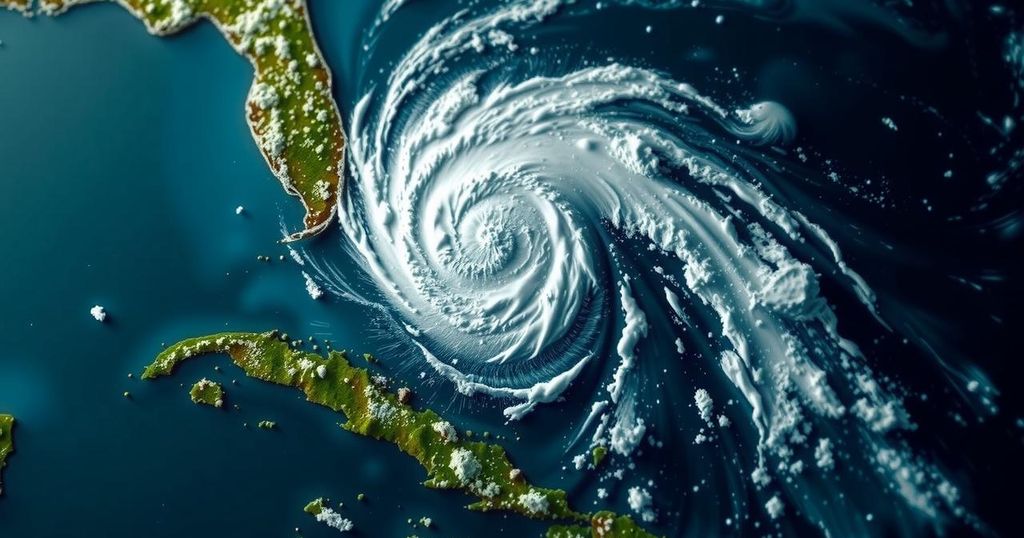2024 Atlantic Hurricane Season: One of the Deadliest in U.S. History

The 2024 Atlantic hurricane season has resulted in over 300 deaths, notably from Hurricane Helene, marking it as one of the deadliest seasons in modern U.S. history. The devastation included not only direct coastal impacts but also severe inland flooding, highlighting the importance of improved disaster preparedness and communication strategies.
The 2024 Atlantic hurricane season is poised to be recorded as one of the most catastrophic in the history of the United States, with four hurricanes resulting in over 300 fatalities across numerous states, stretching from the Gulf Coast to the Appalachian region. Among these storms was Hurricane Helene, which struck Florida’s Big Bend region on September 26. It is characterized by its remarkable intensity, powerful winds, excessive rainfall, and the severe flooding that reached as far as western North Carolina, impacting areas hundreds of miles from the coast.
The devastating toll of Hurricane Helene accounted for 225 deaths alone, in addition to the fatalities from Hurricanes Beryl, Debby, and Milton, which contributed 45, 10, and 24 deaths respectively. This staggering total positions the 2024 season as one of the deadliest behind the catastrophic seasons of 2017 and 2005, according to the National Oceanic and Atmospheric Administration (NOAA). Hurricane Maria, which had a lethal impact on Puerto Rico in 2017, with a death toll exceeding 2,900, and Hurricane Katrina in 2005, which claimed more than 1,800 lives in Louisiana and Mississippi, remain the only storms to inflict greater loss of life in modern records.
In reflecting upon the losses incurred by Hurricane Helene, Jamie Rhome, Deputy Director of NOAA’s National Hurricane Center, emphasized, “We lost a very disheartening number of lives with Helene, and we learned important lessons from that disaster,” particularly regarding the necessity of enhanced communication concerning storm-related risks. Such insights are critical for improving preparedness and response strategies in future hurricane seasons.
The Atlantic hurricane season runs from June 1 to November 30 each year, and during this period, tropical storms and hurricanes threaten various regions along the U.S. coastline. The 2024 season has exhibited extreme severity, resulting in unusually high fatalities due to the impact of several storms. Historical data from NOAA indicates that hurricane seasons can greatly vary in intensity and consequences, with some years witnessing catastrophic events that lead to significant loss of life and property. Understanding the patterns and risks associated with these storms is essential for effective disaster response and public safety initiatives.
The 2024 hurricane season stands out for its alarming death toll, marking it as one of the deadliest in modern U.S. history. With a total of more than 300 fatalities attributed to four hurricanes, including Hurricane Helene, it calls for a reevaluation of disaster preparedness and risk communication strategies. The importance of lessons learned from this season cannot be overstated, as they will play a pivotal role in safeguarding communities against future hurricane threats.
Original Source: www.eenews.net








